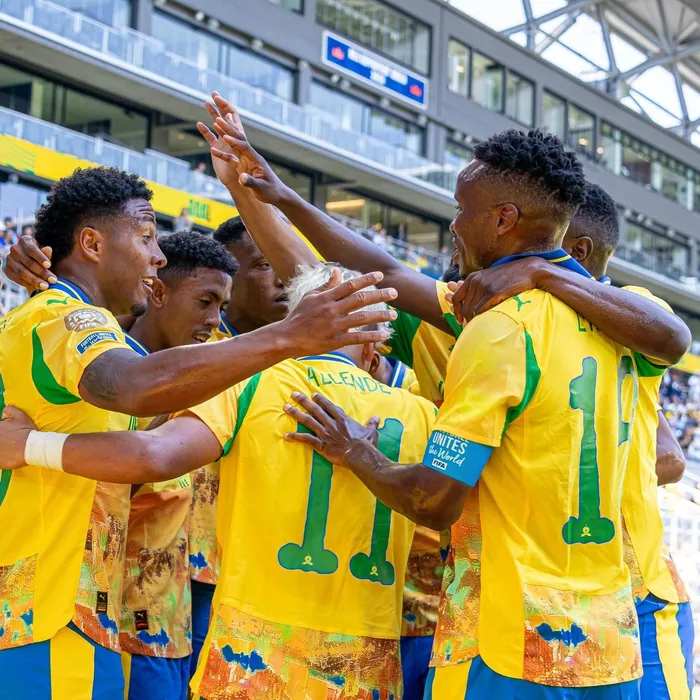Why Sundowns' Club World Cup run was more impressive than it seemed

In their group at the Club World Cup, Mamelodi Sundowns faced Fluminense (Brazil), Ulsan HD (South Korea), and Borussia Dortmund (Germany), three clubs hailing from some of the most competitive footballing environments in the world, where the week-to-week standard is far, far above what most African clubs routinely encounter.
Image: Supplied / Mamelodi Sundowns
WHENEVER I used to try and explain why I made a mistake, why things didn’t quite work out, I would be told that a poor workman always blames his tools. At the time I could not disagree, the people who told me this were so convinced that had I just applied myself more, concentrated and focused, that the outcome WOULD (not could) have been different.
However, finally I feel justified. In the past few days I have become convinced that sometimes it's not about making excuses – it's about acknowledging the scale of the challenge.
Here’s the thing, after Mamelodi Sundowns exited the FIFA Club World Cup group stage despite a valiant effort, head coach Miguel Cardoso delivered a line that I believe deserves more attention.
“To those who don’t follow international football, I encourage you to look at the level of the teams we played against – then you’ll understand the level Sundowns competed at in the Club World Cup.”
Initially I smirked and thought, “Yeah right Miguel – a poor workman blames his tools!”
But then I got curious; I thought to myself, “Let me take a look at the opposition that Sundowns faced in the USA.” I must admit, my instinct was to expose and embarrass the Brazilians coach.
What I learned is that Cardoso’s statement was not a deflection or excuse. Quite the contrary, it is a reality check.
Taking on powerhouses
In their group at the tournament, Sundowns faced Fluminense (Brazil), Ulsan HD (South Korea), and Borussia Dortmund (Germany). And for the record, all three clubs hail from some of the most competitive footballing environments in the world, where the week-to-week standard is far, far above what most African clubs routinely encounter.
Take Fluminense: the reigning Copa Libertadores champions who regularly battle the likes of Brazil’s powerhouses Flamengo and Palmeiras. Or Borussia Dortmund: Bundesliga giants who just reached the UEFA Champions League final. These are not just your run of the mill “big teams”; no, they are far more, these are institutions backed by global scouting networks, billion-rand budgets, and squads peppered with international stars.
Then let’s not forget Ulsan HD, South Korea's K League champions. While perhaps not as glamorous, the reports I trawled through suggest that their league is tactically sharp and intensely competitive. You need to be really good to hold your own, and you have to be truly special to be champions!
International pedigree
Teams from there often feature in AFC Champions League finals, and Ulsan's squad also includes several national team players.
Which brings us to another crucial point worth considering. Most of the players Sundowns faced at the Club World Cup are regulars in their national squads.
Brazil, Germany, and South Korea all sit well above South Africa in the FIFA world rankings: Brazil are fifth, Germany 16th, South Korea 23rd, while South Africa, by comparison, are ranked 59th. Consider THAT gap in pedigree!
Of course, Sundowns themselves supply a substantial portion of Bafana Bafana’s talent pool, but that highlights the gap more than it narrows it. Their best players face domestic competition that doesn’t quite prepare them for the sheer pace, precision, and physicality of the global elite.
And despite this, Sundowns didn't crumble and go into their shell. They didn't just try to survive either, they went out there, competed like they deserved to be there and earned four points from three games. One could even dare to argue that they were unlucky not to advance.
Yes, they bowed out, but they did so while going toe-to-toe with world-class outfits. If anything, Sundowns’ performance should be seen as a foundation, not a failure.
So throw out the thought that Cardoso was making excuses and realise that, as the other saying goes, “Smooth seas do not make skillful sailors”.
Sundowns will grow from this. They may be heading home, but they do so stronger, wiser, and with heads held high. The lessons learned in these turbulent testing waters could shape the future of not only this team, but the broader South African club football landscape for years to come.
Related Topics: